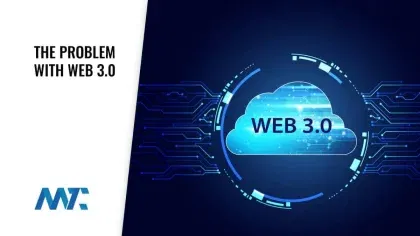
Categorizing, filtering, tagging, collecting, querying, indexing, structuring, formatting, highlighting, networking, following, aggregating, liking, tweeting, searching, sharing, bookmarking, digging, stumbling, sorting, integrating, tracking, attributing… it’s downright painful.
The Evolutions of The Web
- Web 0: In 1989 Tim Berners-Lee of CERN proposes an open Internet. The first website appears in 1991 with the World Wide Web Project.
- Web 1.0: By 1999 there are 3 million websites and users navigate primarily by word-of-mouth and directories like Yahoo!
- Web 2.0: By 2006 there are 85 million sites but interactive sites, wikis and social media begin to take shape where users can participate in content development.
- Web 3.0: By 2014, over a billion websites exist with intelligent search and communication systems, largely because its effectively structured and tagged for technologies to consumer, index, and find information for the users.
- Web 4.0: We are entering the next phase of the Internet where everything is connected, systems are self-learning, needs are personalized and optimized, and the web becomes woven into our lives just as power distribution did over a century ago.
I predicted that 2010 would be the year of filtering, personalization, and optimization. Today, I’m not sure we’re even close yet – we might still be years off. The bottom line is that we need it now, though. The noise is already deafening.
Programmatic advertising, artificial intelligence, and machine learning are all being deployed in the cloud to try to improve the relevance and targeting of communication. At issue is that these are all technologies deployed by corporations to control communication to the end user. This is absolutely backwards… we need systems where the user can easily control the information they’re fed and how they’re fed it.
Google is 20 years old and still just a search engine, only providing you dumb data indexed on keywords that match your queries. I’d really like someone to build a find engine next… I’m tired of searching, aren’t you? Hopefully, the mass adoption of voice technologies will drive innovation in this arena – I can’t imagine consumers will be very patient rotating through multiple results to find the one they’re looking for.
Companies like Firefox, Google, and Apple may be helping. By defaulting ad tracking disabled upon installation, it puts the responsibility in the hands of the user. As a marketer, it may sound a bit nuts for me to want consumers and businesses to stop listening to me. But if I’m irrelevant and annoying, that’s absolutely what they should do. Marketers still always default to sending the message to everyone and then segmenting and refining the message.
GDPR may also be helping. I have no idea what the impact was of initial GDPR opt-in messages on companies, but I have a feeling it was devastating. While I believe it was heavy-handed, it will absolutely make better marketers out of us. If we were truly concerned about every message we were sending, when we were sending it, and the value it brought to each prospect or customer – I’m sure we’d send a fraction of them. And if consumers weren’t bombarded, they may not push for heavy-handed regulation like this.
I think technology companies who listen and treat prospects and customers with the respect they deserve, ensuring value through communications, will ultimately be the winners of Web 3.0. Otherwise, we’re diving into Web 4.0 (Internet of Things) without a safety net.